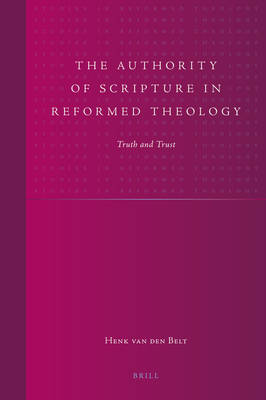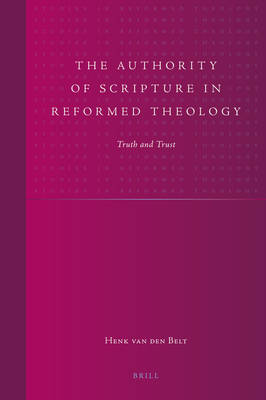
- Afhalen na 1 uur in een winkel met voorraad
- Gratis thuislevering in België vanaf € 30
- Ruim aanbod met 7 miljoen producten
- Afhalen na 1 uur in een winkel met voorraad
- Gratis thuislevering in België vanaf € 30
- Ruim aanbod met 7 miljoen producten
Zoeken
€ 224,45
+ 448 punten
Omschrijving
The authority of Scripture is the cornerstone of Reformed theology. Calvin introduced the term autopistos from Greek philosophy to express that this authority does not depend on the church or on rational arguments, but is self-convincing. After dealing with Calvin's Institutes, the development of Reformed orthodoxy, and the positions of Benjamin B. Warfield and Herman Bavinck, the author draws theological conclusions, advocating a renewed emphasis on the autopistia of Scripture as starting point for Reformed theology in a postmodern context. The subject-object scheme leads to separating the certainty of faith from the authority of Scripture. The autopistia of Scripture, understood as a confessional statement, implies that truth and trust are inseparable.
Specificaties
Betrokkenen
- Auteur(s):
- Uitgeverij:
Inhoud
- Aantal bladzijden:
- 400
- Taal:
- Engels
- Reeks:
- Reeksnummer:
- nr. 17
Eigenschappen
- Productcode (EAN):
- 9789004163072
- Verschijningsdatum:
- 23/01/2008
- Uitvoering:
- Hardcover
- Formaat:
- Genaaid
- Afmetingen:
- 168 mm x 246 mm
- Gewicht:
- 784 g

Alleen bij Standaard Boekhandel
+ 448 punten op je klantenkaart van Standaard Boekhandel
Beoordelingen
We publiceren alleen reviews die voldoen aan de voorwaarden voor reviews. Bekijk onze voorwaarden voor reviews.








